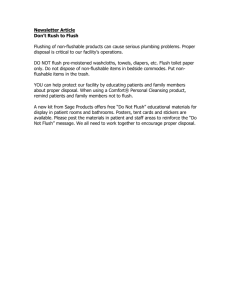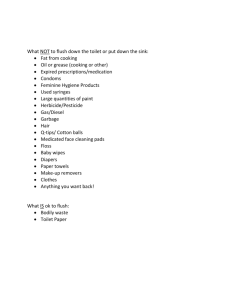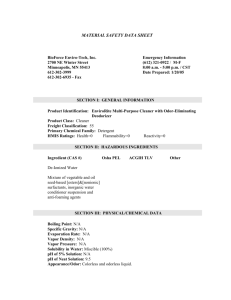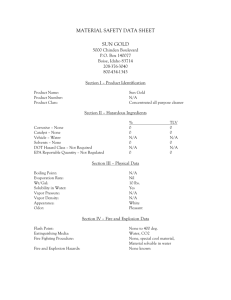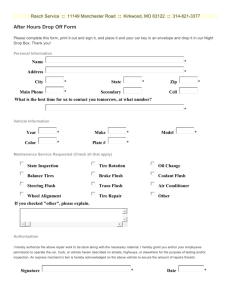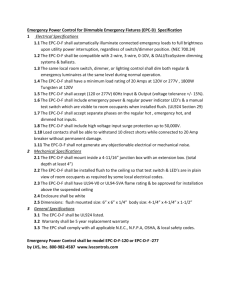“W , ?
advertisement
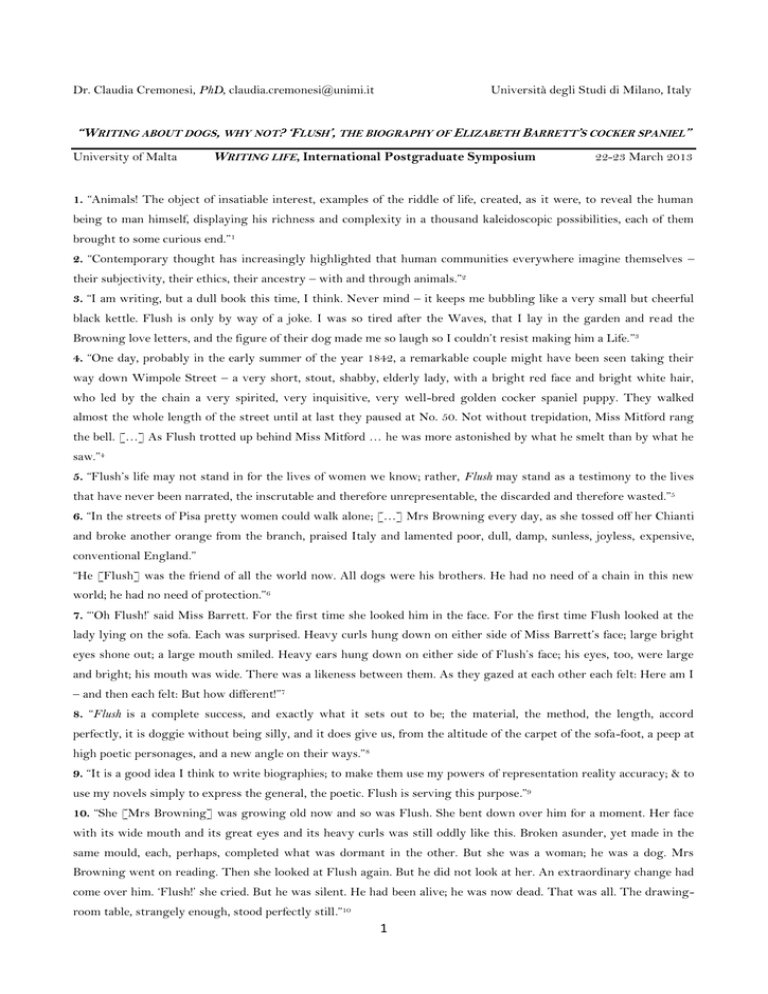
Dr. Claudia Cremonesi, PhD, claudia.cremonesi@unimi.it Università degli Studi di Milano, Italy “WRITING ABOUT DOGS, WHY NOT? ‘FLUSH’, THE BIOGRAPHY OF ELIZABETH BARRETT’S COCKER SPANIEL” University of Malta WRITING LIFE, International Postgraduate Symposium 22-23 March 2013 1. “Animals! The object of insatiable interest, examples of the riddle of life, created, as it were, to reveal the human being to man himself, displaying his richness and complexity in a thousand kaleidoscopic possibilities, each of them brought to some curious end.”1 2. “Contemporary thought has increasingly highlighted that human communities everywhere imagine themselves – their subjectivity, their ethics, their ancestry – with and through animals.”2 3. “I am writing, but a dull book this time, I think. Never mind – it keeps me bubbling like a very small but cheerful black kettle. Flush is only by way of a joke. I was so tired after the Waves, that I lay in the garden and read the Browning love letters, and the figure of their dog made me so laugh so I couldn’t resist making him a Life.”3 4. “One day, probably in the early summer of the year 1842, a remarkable couple might have been seen taking their way down Wimpole Street – a very short, stout, shabby, elderly lady, with a bright red face and bright white hair, who led by the chain a very spirited, very inquisitive, very well-bred golden cocker spaniel puppy. They walked almost the whole length of the street until at last they paused at No. 50. Not without trepidation, Miss Mitford rang the bell. […] As Flush trotted up behind Miss Mitford … he was more astonished by what he smelt than by what he saw.”4 5. “Flush’s life may not stand in for the lives of women we know; rather, Flush may stand as a testimony to the lives that have never been narrated, the inscrutable and therefore unrepresentable, the discarded and therefore wasted.”5 6. “In the streets of Pisa pretty women could walk alone; […] Mrs Browning every day, as she tossed off her Chianti and broke another orange from the branch, praised Italy and lamented poor, dull, damp, sunless, joyless, expensive, conventional England.” “He [Flush] was the friend of all the world now. All dogs were his brothers. He had no need of a chain in this new world; he had no need of protection.”6 7. “‘Oh Flush!’ said Miss Barrett. For the first time she looked him in the face. For the first time Flush looked at the lady lying on the sofa. Each was surprised. Heavy curls hung down on either side of Miss Barrett’s face; large bright eyes shone out; a large mouth smiled. Heavy ears hung down on either side of Flush’s face; his eyes, too, were large and bright; his mouth was wide. There was a likeness between them. As they gazed at each other each felt: Here am I – and then each felt: But how different!”7 8. “Flush is a complete success, and exactly what it sets out to be; the material, the method, the length, accord perfectly, it is doggie without being silly, and it does give us, from the altitude of the carpet of the sofa-foot, a peep at high poetic personages, and a new angle on their ways.”8 9. “It is a good idea I think to write biographies; to make them use my powers of representation reality accuracy; & to use my novels simply to express the general, the poetic. Flush is serving this purpose.”9 10. “She [Mrs Browning] was growing old now and so was Flush. She bent down over him for a moment. Her face with its wide mouth and its great eyes and its heavy curls was still oddly like this. Broken asunder, yet made in the same mould, each, perhaps, completed what was dormant in the other. But she was a woman; he was a dog. Mrs Browning went on reading. Then she looked at Flush again. But he did not look at her. An extraordinary change had come over him. ‘Flush!’ she cried. But he was silent. He had been alive; he was now dead. That was all. The drawingroom table, strangely enough, stood perfectly still.”10 1 References: 1 Schulz, Bruno, The Street of Crocodiles and Other Stories, (1934), London, Penguin Books, 1977, p. 42. 2 Gross, Aaron, Vallely, Anne, eds., Animals and the Human Imagination: A Companion to Animals Studies, New York, Columbia University Press, 2012, p. 1. Nicolson, Nigel, Trautmann, Joanne, eds., The Letters of Virginia Woolf, 6 vols., London, The Hogarth Press, 1979, 3 vol. V: 1932-1935, The Sickle Side of the Moon, pp. 161-162. To Lady Ottoline Morrell, Feb. 23 rd 1933. Woolf, Virginia, Flush: A Biography, (1933), edited with an Introduction and Notes by Kate Flint, Oxford, Oxford 4 University Press, 2000, pp.13-15. 5 Caughie, Pamela L., “Flush and the Literary Canon: Oh Where Oh Where Has That Little Dog Gone?,” (1991), published in Tulsa Studies in Women's Literature, Vol. 10, No. 1, Redefining Marginality (Spring,1991), pp. 47-66, p. 61. 6 Woolf, Virginia, Flush: A Biography, (1933), cit., pp. 76-77. 7 Ibid., p. 18. 8 Forster, Morgan, Rede Lecture, quoted in Szladits, Lola L., “The Life, Character and Opinions of Flush the Spaniel,” in McNees, Eleanor, ed., Virginia Woolf. Critical Assessments, 4 vols., Mountfield, Helm Information, 1994, vol. II, pp. 504-510, p. 510. 9 Bell Olivier, Anne, McNeillie, Andrew, eds., The Diary of Virginia Woolf, 5 vols., London, The Hogarth Press, 1982, vol. IV: 1931-1935, p. 40. Sunday 16th August 1931. 10 Woolf, Virginia, Flush: A Biography, (1933), cit., p. 175. 2
